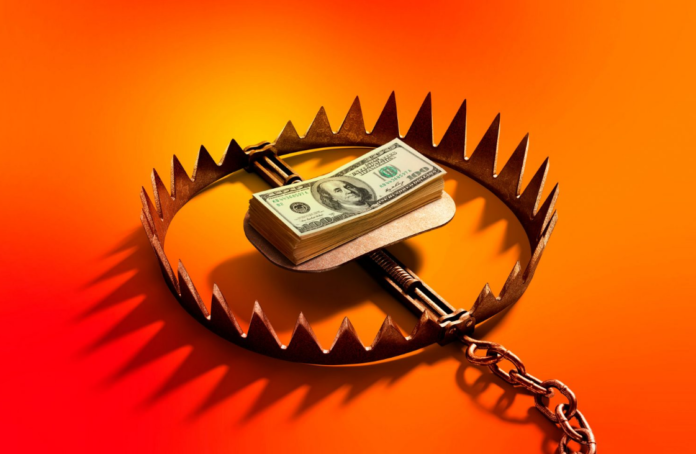Cryptocurrency’s popularity surge has brought an unfortunate increase in scams and fraud targeting unsuspecting users. Binance CEO Changpeng “CZ” Zhao recently alerted his followers about a clever ploy preying on the crypto community.
This activity revolves around the creation of fake wallet addresses that closely resemble the victim’s original address, resulting in a staggering loss of $20 million for one experienced crypto trader.
This incident serves as a stark reminder of the evolving tactics employed by cybercriminals in the ever-expanding realm of digital assets.
To deceive victims, scammers match the starting and ending characters of the original address to create the bogus ones, making them look legitimate at first glance.
Dust Transactions: A Key Element Of The Scam
They then execute small “dust transactions” to the target, which show up in the victim’s transaction history and create a false sense of legitimacy. The trap is set so that when the victim copies and pastes the fake address from one of these dust transactions, their funds are unknowingly transferred to the scammer’s wallet.
To avoid falling victim to this type of scam, cryptocurrency users can adopt a blockchain domain like the Ethereum Name Service (ENS). Blockchain domains operate similarly to email addresses by providing users with a way to identify wallets using regular words instead of long strings of letters and numbers.
By using a memorable phrase as your blockchain domain, you can significantly reduce the risk of copying a fake address inadvertently.
Bitcoin holds steady at $29K. Chart: TradingView.com
Furthermore, security experts advise against copying and pasting addresses directly from applications when transferring funds. Scammers often exploit this habit as it increases the chances of users copying a fake address unknowingly. Instead, manually type the address or use a secure QR code scanner to ensure accuracy.
Best Practices For Protecting Your Digital Assets
Enabling two-factor authentication (2FA) is another essential security measure to protect your cryptocurrency accounts. 2FA adds an extra layer of security by requiring users to provide a second form of verification, typically a code sent to their mobile device, before accessing their accounts. This measure can prevent unauthorized access, even if someone gains access to your password.
Lastly, using strong and unique passwords for your crypto accounts is crucial. Avoid using easily guessable passwords or reusing passwords across multiple platforms. Consider using a password manager to generate and store strong passwords securely.
While CZ’s warning and the timely intervention from Binance saved one user from a major loss, not all victims are as fortunate. One user reported losing $20,000 USDT in a similar scam and was unable to recover the funds even after promptly contacting Binance’s support team.
It’s not just Binance users who are at risk. Coinbase users have also reported falling victim to various security incidents, including phishing attacks. Scammers have gone to the extent of using domain names closely resembling that of the legitimate exchange to deceive unsuspecting users.
Featured image from Kaspersky
Credit: Source link





















 Bitcoin
Bitcoin  Ethereum
Ethereum  XRP
XRP  Tether
Tether  Solana
Solana  Dogecoin
Dogecoin  USDC
USDC  Cardano
Cardano  Lido Staked Ether
Lido Staked Ether  TRON
TRON  Chainlink
Chainlink  Avalanche
Avalanche  Sui
Sui  Wrapped stETH
Wrapped stETH  Wrapped Bitcoin
Wrapped Bitcoin  Stellar
Stellar  Toncoin
Toncoin  Hedera
Hedera  Shiba Inu
Shiba Inu  WETH
WETH  Polkadot
Polkadot  LEO Token
LEO Token  Bitcoin Cash
Bitcoin Cash  Litecoin
Litecoin  Official Trump
Official Trump  Hyperliquid
Hyperliquid  Bitget Token
Bitget Token  Uniswap
Uniswap  Pepe
Pepe  Wrapped eETH
Wrapped eETH  USDS
USDS  NEAR Protocol
NEAR Protocol  Ethena USDe
Ethena USDe  Aave
Aave  Aptos
Aptos  Internet Computer
Internet Computer  Ondo
Ondo  WhiteBIT Coin
WhiteBIT Coin  Monero
Monero  Ethereum Classic
Ethereum Classic  Cronos
Cronos  POL (ex-MATIC)
POL (ex-MATIC)  Mantle
Mantle  Render
Render  Dai
Dai  Bittensor
Bittensor  Algorand
Algorand 
